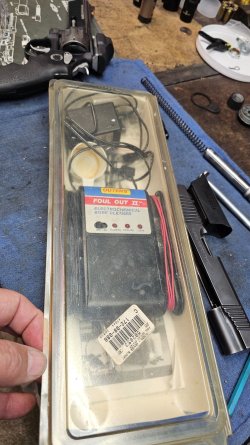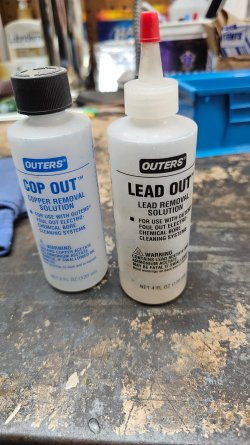All the points have been made by others about recommended cleaning methods. I would reiterate not to try to clean a leaded barrel by shooting copper jacketed rounds. Use proper solvent. I like Hoppes No. 9. But there are two important hints. First is Hoppes No. 9 eats copper, so it is rough on bronze bore brushes. So brush first with a non-copper removing solvent first. M-Pro 7 is my go to with bronze brushes, also a Hoppes product. Here is the BIG HINT: After brushing patch the bore liberally with Hoppes No. 9 and WALK AWAY. Let it sit for at least a day, then start over with brushing (just a few passes) then leave wet with No 9 and let sit. Only a few minutes over a period of days No 9 will float fouling (copper or lead) out of the barrel pores. Let time rather than elbow grease do the work. Hoppes No. 9 had the great advantage that it is not only non-corrosive to barrels, it protects as well, unlike many other solvents.
Bores have been worn or ruined by excessive and aggressive cleaning. Use a good rod, preferably brass, never aluminum (picks up grit and becomes a cutting tool), brass jags, and a muzzle guide.



